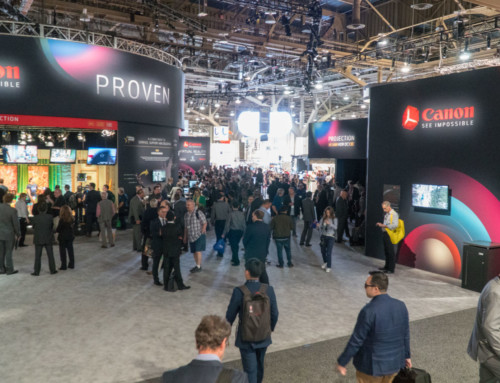With many events pivoting to virtual right now, event planners are working overtime to make sure their digital trade show event programming is packed with premium educational content. But what about the speakers that attendees come to an event to experience and learn from. As with live events, quality keynote presentations can help transform virtual events into unforgettable experiences. However, working with speakers for a digital event is very different than a live talk on stage.
As much work as you put into choosing a live event speaker should also be put into a virtual speaker
Many have canceled events, which is costly and time-consuming. You may be tempted to save money and time and quickly do a virtual conference filled with educational content. However, canceled trade show events means that people are hungry for leads, engagement, support, and inspiration.
Like they do at a live event, keynote speakers frequently give a high-level perspective on the challenges facing an industry. In other cases that provide inspiration, hope, and a renewed sense of vigor. Given the challenges the entire world is facing right now, the message of a keynote speaker is more important now than it ever has been.
In a time like this, you need an event speaker with experience.
While it might seem difficult to duplicate the kind of attendee engagement that live event experiences produce, experienced speakers can help with ways to keep attendees attention. They have the experience and
Whether the production is relatively traditional or involves immersive technologies such as augmented reality or holograms, virtual and digitally streamed events can easily deliver the wow factor clients are looking for. However, no matter how much technology you use your speaker must be engaging and entertaining. This typically comes from someone with a lot of experience.
Know how virtual speakers will impact your budget.
Production costs drop when hosting a virtual versus a live event, and the cost for speakers does, too, in many cases. In general, speaker fees for virtual appearances are 25 to 50 percent lower. This is due to the lack of time and travel that the speakers have to commit to. As well as additional costs such as production, airfare, meals, and hotel rooms.
A number of variables can have an impact on a speaker’s overall fee. For example, if you want to hire a speaker for a Q&A or a fireside chat or, an informal interview, the price is going to be lower than if you’re asking for a highly customized keynote on how COVID-19 is impacting your industry.
Decide how you’ll deliver the content
Depending on your event’s needs and production budget, speaker presentations can be delivered to a virtual platform via live streaming, pre-recorded performances, or a combination of the two. Both formats have their own set of pros and cons.
Pre-recorded performances take away the risk of production glitches or service interruptions, while live events provide more opportunity for audience interaction and a more authentic feel. Depending on the flow of your program, a mix of pre-recorded and live-streamed segments can work well, and also be easier in accommodating schedules: For example, having a speaker present via live stream and then having a pre-recorded artist perform later in the program.
Partner with a qualified speaker’s bureau.
You don’t want to hire a talking head that your audience will tune out from within the first few minutes, so be sure to talk with your speakers’ bureau to learn which speakers are good in this environment and which are creating content specifically for virtual. “[Bureaus] work with speakers on their content and how they’re delivering it, as events typically want more than a speaker looking at a webcam,” says Shapoff.
A knowledgeable bureau should also be able to offer their virtual expertise by having an understanding of what technology platforms are available and being able to guide less experienced planners toward the right option for their audience.
The key to a successful partnership is providing as much information as possible on the front-end of your virtual talent selection process. Truran suggests planners come prepared with answers to the following questions:
- How many appearances will the speaker be making throughout the length of the event?
- What will the format be – a highly customized message or more of a “fireside chat?”
- What type of production quality do you want the speaker to incorporate?
Pulling off a successful virtual event with engaging speakers and talent doesn’t have to be a daunting or confusing experience. Simplify the process by choosing an experienced speaker bureau that can help you navigate this unchartered territory while guiding you toward the right digital speakers for your online event.




Leave A Comment
You must be logged in to post a comment.